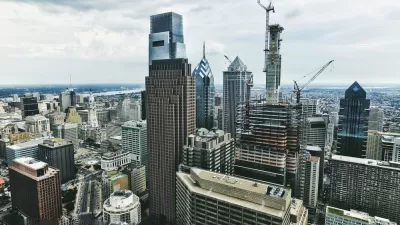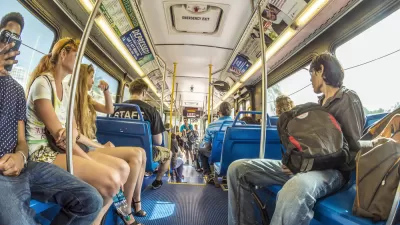Decisions made at the local level can have a significant impact on emissions in the transportation sector.

In an article in Governing, Laurie Mazur describes how some U.S. cities are successfully cutting transportation emissions and the lessons they can teach other cities.
Mazur points out the ways that local governments can impact transportation emissions. “It is municipalities, for example, that determine the location of jobs and housing, and therefore the length of commutes, through zoning laws and other land-use regulations. Longer, more-car-dependent commutes mean more climate-changing emissions.”
The American Council for an Energy-Efficient Economy's (ACEEE) 2024 City Clean Energy Scorecard reveals that 31 of 75 cities studied have targeted emissions reduction goals. Of these, “San Francisco took the top spot in the ACEEE scorecard for transportation, winning points for its excellent transit service, bike network and numerous EV charging stations. The city’s transit agency and central school district are also working to electrify their bus fleets.”
Other top cities include Portland, Oregon, and Oakland, California, both of which have made concerted efforts to promote affordable housing production near transit.
The report highlights the tools that seem to lead to success: making plans and setting targets; zoning changes that seek to reverse sprawl and improve walkability; investment in alternative transportation options; adoption of more efficient vehicles in city fleets and city-sponsored rebates for e-bikes and electric cars; and more efficient freight systems.
FULL STORY: Some Cities Are Actually Cutting Transportation Emissions. Here’s How.

Planetizen Federal Action Tracker
A weekly monitor of how Trump’s orders and actions are impacting planners and planning in America.

Congressman Proposes Bill to Rename DC Metro “Trump Train”
The Make Autorail Great Again Act would withhold federal funding to the system until the Washington Metropolitan Area Transit Authority (WMATA), rebrands as the Washington Metropolitan Authority for Greater Access (WMAGA).

The Simple Legislative Tool Transforming Vacant Downtowns
In California, Michigan and Georgia, an easy win is bringing dollars — and delight — back to city centers.

The States Losing Rural Delivery Rooms at an Alarming Pace
In some states, as few as 9% of rural hospitals still deliver babies. As a result, rising pre-term births, no adequate pre-term care and harrowing close calls are a growing reality.

The Small South Asian Republic Going all in on EVs
Thanks to one simple policy change less than five years ago, 65% of new cars in this Himalayan country are now electric.

DC Backpedals on Bike Lane Protection, Swaps Barriers for Paint
Citing aesthetic concerns, the city is removing the concrete barriers and flexposts that once separated Arizona Avenue cyclists from motor vehicles.
Urban Design for Planners 1: Software Tools
This six-course series explores essential urban design concepts using open source software and equips planners with the tools they need to participate fully in the urban design process.
Planning for Universal Design
Learn the tools for implementing Universal Design in planning regulations.
Smith Gee Studio
City of Charlotte
City of Camden Redevelopment Agency
City of Astoria
Transportation Research & Education Center (TREC) at Portland State University
US High Speed Rail Association
City of Camden Redevelopment Agency
Municipality of Princeton (NJ)





























